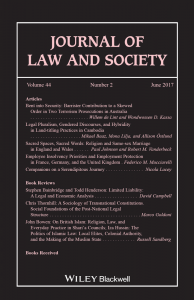Rethinking Sex Education
 by theoryforthemasses
by theoryforthemasses
Public debate about the content of sex education in U.S. schools has been raging for decades. On one side of the fence are proponents of programs that teach abstinence-only sex education; on the other side are those who advocate for a more comprehensive program that teaches students how to engage in sexual activity more safely. The educational system has long been the site of this debate. However, a recent New York Times article explores a program in North Carolina that allows teenagers to text their questions about sex to trained professionals who text answers back to them. Programs like this are being developed in other U.S. cities, but critics are concerned that they may undercut abstinence-only messages that states like North Carolina advocate within their public schools.
In her book, When Sex Goes to School, Kristin Luker follows four different communities as they debate the consequences of sex education in schools. What she finds is that questions about sex education aren’t just about whether children should be taught about abstinence or contraceptive use. Instead, the sex education debate is really about the relationship of sex to marriage and how women and men should relate to one another (Luker frames the debate in heterosexual terms since this is how it is understood in the communities she studied). She suggests that encouraging our kids to abstain from sex or use contraceptives may not be enough. Rather, we may do better to elucidate the conflict we feel about sex and gender, historicize the debate, and talk about its political implications… messages that may be far too complex for a single text.



1754-9469/asset/society_affiliation_image.gif?v=1&s=9197a1a6ba8c381665ecbf311eae8aca348fe8aa)

This is a different look at how text messaging mediates interpersonal relationships–inserting itself between and bringing about relationships.
Keri